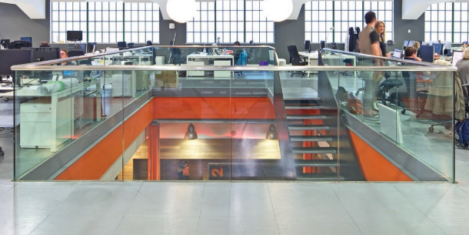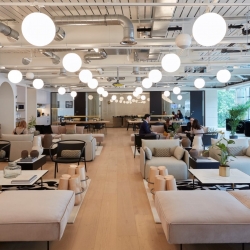To provide the best experiences, we use technologies like cookies to store and/or access device information. Consenting to these technologies will allow us to process data such as browsing behaviour or unique IDs on this site. Not consenting or withdrawing consent, may adversely affect certain features and functions.
The technical storage or access is strictly necessary for the legitimate purpose of enabling the use of a specific service explicitly requested by the subscriber or user, or for the sole purpose of carrying out the transmission of a communication over an electronic communications network.
The technical storage or access is necessary for the legitimate purpose of storing preferences that are not requested by the subscriber or user.
The technical storage or access that is used exclusively for statistical purposes.
The technical storage or access that is used exclusively for anonymous statistical purposes. Without a subpoena, voluntary compliance on the part of your Internet Service Provider, or additional records from a third party, information stored or retrieved for this purpose alone cannot usually be used to identify you.
The technical storage or access is required to create user profiles to send advertising, or to track the user on a website or across several websites for similar marketing purposes.
 Additional time on people’s hands as a result of the pandemic has prompted the average British worker to pick up a range of good habits for their careers, according to a new study by Hitachi Capital Business Finance. (more…)
Additional time on people’s hands as a result of the pandemic has prompted the average British worker to pick up a range of good habits for their careers, according to a new study by Hitachi Capital Business Finance. (more…)










 Heidrick and Struggles has released the results of a new global CEO study
Heidrick and Struggles has released the results of a new global CEO study 
 New research from beauty company
New research from beauty company 
 As businesses return to their offices they are faced with a challenge – how do they reappraise their space requirements post-Covid? Social and technological advancements are changing real estate from being a fixed physical product, into flexible, employee-centric spaces that enable new models of hybrid working and business operations. These have a significant impact on the ways that businesses work and the options available to them.
As businesses return to their offices they are faced with a challenge – how do they reappraise their space requirements post-Covid? Social and technological advancements are changing real estate from being a fixed physical product, into flexible, employee-centric spaces that enable new models of hybrid working and business operations. These have a significant impact on the ways that businesses work and the options available to them. 
 One of the unintended consequences of the pandemic has been to focus attention on the issue of indoor air quality. But as Sarah Zhang points out
One of the unintended consequences of the pandemic has been to focus attention on the issue of indoor air quality. But as Sarah Zhang points out 
 Research from
Research from 
 As employees across the UK are to set to embark on their return to the workplace following the easing of COVID-19 restrictions, new research by
As employees across the UK are to set to embark on their return to the workplace following the easing of COVID-19 restrictions, new research by 


 The new issue of
The new issue of 










July 16, 2021
Is it time for a carbon tax?
by Joanna Knight • Comment, Environment, JK, Workplace design